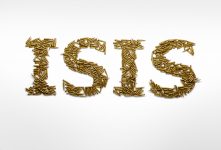Will Captured Australian ISIS Fighters Get the Death Penalty?

Although the death penalty has been outlawed for many years in Australia, this doesn’t mean that Australians are immune from receiving the death penalty if they commit a crime overseas.
This is particularly relevant for Australian nationals who may be fighting overseas as part of organisations such as ISIS.
According to the Geneva Convention, which both the Iraqi and Australian governments have signed, prisoners who are captured are dealt with by the state in which they are captured, not by the troops who captured them.
This means that it is likely that Australians captured fighting in Iraq will be handed over to Iraqi authorities to be dealt with.
There have been a large number of media reports concerning the number of Australians who are currently overseas fighting as part of so-called ‘jihadist organisations’, and recent speculation has suggested that if they are caught they are likely to face the death penalty under Iraqi law.
Iraq is known for being harsh when it comes to penalising alleged terrorists, having hanged 42 convicted terrorists over two days in January this year, followed by a further 26 in one day.
Australian Major General Craig Orme, who is leading the fight against the Islamic State in Iraq and Syria, has stated that any Australians captured fighting for ISIS will be delivered to Iraq to be dealt with, and will not be extradited to Australia.
Why wouldn’t the Australian Government step in?
Generally, if an Australian is arrested overseas and sentenced to the death penalty, the Australian Government will seek to have the penalty reduced through diplomatic channels.
It is believed to be unlikely for this to happen in the case of Australian nationals fighting for terrorist organisations overseas.
Although Australia does have an existing extradition agreement with Iraq, to interfere in the justice process of the country would potentially trigger further problems.
The coalition of countries who have stepped in to support Iraq against IS are in a sensitive situation, as they want to ensure that it doesn’t look like they are trying to invade or overstep their legitimate purpose for being there.
Interfering in the criminal justice system or trying to encourage more lenient penalties for Australians could be seen as overstepping the boundaries and lead to tensions.
In addition to this, given the strong stance that the Australian Government is taking on Australians fighting overseas, including cancelling passports, it is unlikely to make any strong diplomatic attempts to save those who are found to be fighting alongside IS members in Iraq and other countries.
Australians who leave the country to fight on behalf of IS in Iraq and Syria are already breaking Australian law, as well as local laws.
It has been suggested that Australian forces may potentially have access to any captured Australian terrorists for the purposes of questioning and obtaining intelligence about networks in Australia.
Major Orme has stated that any potential captives won’t be subjected to torture during interrogations by Australian authorities in Iraq.
What about fighters in Syria?
Although death by hanging is a likely outcome for convicted terrorists caught in Iraq, in other countries their fate is less certain.
As the Kurdish separatists form a large number of those fighting on the front line, it is likely that they could take custody of any terrorists who are captured.
Syria doesn’t have a legitimate government, but the country has previously been known for hanging people publicly in town squares.
Australians captured in the more remote areas of Syria could also potentially face summary execution under tribal law.
This would mean it would be unlikely they would ever reach court or face a trial.
Australian Government moving to restrict travel
Before they can be caught and penalised, Australians have to first get overseas to fight in Iraq and Syria, and this is likely to become increasingly difficult with the latest raft of anti-terrorist legislation, which targets Australians travelling to specific countries.
Under the new laws, it will be an offence to travel to particular areas of the world, or even to plan to go, without having a legitimate reason for doing do.
Funding or helping others go overseas to fight in foreign wars is also a criminal offence.
Australians who are captured while fighting overseas are likely to suffer harsh penalties, whether or not they end up being sentenced to death.






